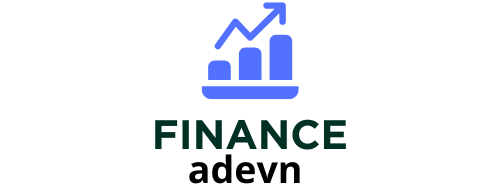budgeting strategies for High Inflation Times to now easy 1
Table of Contents
Understanding the Importance of Budgeting

budgeting strategies
Thank you for reading this post, don't forget to subscribe!Budgeting is a fundamental practice that plays a significant role in ensuring financial health for individuals and families. By creating a budget, one can track income and expenses meticulously, enabling better management of financial resources. This process promotes awareness of spending habits and helps individuals identify areas where they may be overspending. According to various studies, individuals who maintain a budget are more likely to save for goals and emergencies compared to those who do not engage in budgeting activities. Learn about : Passive Income Streams; This statistic alone highlights the compelling link between budgeting and financial success. financial goals tracking expenses
Moreover, budgeting is an effective tool for setting and achieving financial goals. Whether it is saving for a home, planning a vacation, or preparing for retirement, a well-structured budget can provide a clear roadmap. It allows individuals to allocate funds towards their priorities and motivates them to stay focused on their objectives. For instance, by systematically saving a portion of monthly income, a person can accumulate a significant amount over time.
Furthermore, gaining control over finances is another critical advantage of budgeting. With a comprehensive understanding of income sources and expenditures, individuals can make informed decisions that ultimately lead to improved financial stability. When unexpected expenses arise, such as medical emergencies or vehicle repairs, a budget can cushion the financial impact by enabling the individual to draw from planned savings. Data reveals that people who budget regularly can handle financial surprises with greater ease than those without a financial plan.
In essence, budgeting is not merely a method for tracking money; it is a powerful strategy for enhancing financial wellness. The discipline gained from effective budgeting leads to better fiscal outcomes, more savings, and a clearer path towards achieving desired financial goals.
Types of Budgeting Methods
Budgeting is a fundamental financial skill that aids individuals in managing their income and expenses. There are various budgeting methods available, each catering to different needs and financial situations. Understanding these methods can help individuals select the most suitable approach for their financial goals.
One prevalent method is the **zero-based budget**. In this approach, every dollar of income is allocated to specific expenses, savings, or debt repayment, resulting in a budget that balances to zero at the end of the month. This strategy forces individuals to prioritize essential expenditures and may help identify unnecessary spending. However, it can be time-consuming and may require continuous adjustments throughout the month.
Another popular budgeting strategy is the **50/30/20 rule**, which divides income into three categories: 50% for needs, 30% for wants, and 20% for savings and debt repayment. This method is particularly beneficial for individuals seeking a simple, easy-to-follow structure. However, it may not be as effective for those with significant debt or fluctuating income, as it lacks the granularity of more detailed budgeting methods.
The **envelope system** is an older yet effective budgeting technique, where individuals allocate cash for specific spending categories into envelopes. Once the cash in an envelope is spent, no further spending can occur in that category for the month. This method promotes discipline and helps individuals visually track their spending.
Each budgeting method has its unique advantages and potential drawbacks, making it essential for individuals to assess their financial circumstances before choosing the right strategy for them. Evaluating personal financial goals and spending habits can greatly enhance the chances of achieving financial success.
Setting Realistic Financial Goals

Establishing realistic financial goals is an integral part of effective budgeting strategies that lead to long-term financial success. When individuals embark on their budgeting journey, defining clear and attainable financial goals provides direction and motivation. Goals serve as benchmarks that help track progress, ensure accountability, and facilitate adjustments to spending habits. Therefore, it is essential to categorize these goals into short-term and long-term to create a structured approach to achieving financial stability.
To define these goals adequately, adopting the SMART criteria can be particularly beneficial. This framework emphasizes crafting goals that are Specific, Measurable, Achievable, Relevant, and Time-bound. A specific goal should clearly articulate what is to be achieved. For instance, rather than merely stating “save money,” an individual might specify “save $5,000 for a vacation within the next 12 months.” This demonstrates a measurable aspect, as progress can easily be tracked. Goals should also be attainable; it is crucial to consider one’s income, expenses, and financial obligations to set realistic expectations.
Relevance ensures that the goals align with one’s overall financial objectives and personal values. If a goal does not resonate with one’s priorities, it is likely to be deprioritized. Lastly, establishing a timeline is essential, as it promotes a sense of urgency and commitment to the goal. By setting a deadline, individuals can create a realistic action plan.
Prioritizing financial objectives is equally important. Not all financial goals carry the same weight, and prioritizing them allows individuals to allocate resources effectively. This can be achieved through regular reviews and adjustments of one’s budget and goals, ensuring that aspirations remain attainable and relevant in the context of changing financial circumstances.
Tracking Expenses Efficiently
Effective budgeting is predicated on the visibility of one’s financial habits, which is why tracking expenses efficiently is crucial. There are several methods available for monitoring your spending, ranging from traditional pen-and-paper techniques to advanced budgeting applications. Each of these methods has its inherent advantages that cater to diverse preferences and financial situations.
One of the most straightforward approaches to tracking expenses is using a ledger or notebook. This old-school technique allows individuals to physically record their daily expenditures, providing a tangible representation of where money is allocated. While it requires discipline and effort, it offers a clear and personalized insight into one’s spending patterns. Moreover, this method encourages mindfulness regarding financial decisions, which is often lost in digital alternatives.
On the other hand, leveraging technology through budgeting apps can significantly enhance the efficiency of expense tracking. Applications such as Mint, You Need a Budget (YNAB), and PocketGuard offer features that automatically categorize and analyze spending. These tools not only save time but also integrate bank transactions, providing real-time feedback on financial habits. Users can easily generate reports that reveal spending trends, enabling more informed decisions. Additionally, many budgeting apps include reminders for bills and savings goals.
Regardless of the method chosen, best practices can greatly improve the effectiveness of expense tracking. Regular reviews of spending habits—ideally performed weekly or monthly—allow individuals to adjust their budgets promptly based on financial patterns. This practice ensures that unexpected expenses do not derail financial goals, promoting consistent adherence to the established budget. Ultimately, whether one chooses a manual or digital approach, the key to successful budgeting lies in the commitment to monitor spending and make informed adjustments over time.
The Role of Savings in a Budget

Integrating savings into a budget is a fundamental component of achieving long-term financial success. It is essential to view savings not just as an afterthought but as a priority that deserves a dedicated portion of one’s income. Establishing a savings strategy begins with creating an emergency fund, which serves as a financial buffer against unforeseen expenses, such as medical emergencies or essential home repairs. Experts generally recommend saving three to six months’ worth of living expenses in this fund to ensure maximum security.
Furthermore, it is critical to keep retirement in focus when planning savings. Whether through employer-sponsored retirement plans, such as a 401(k), or individual retirement accounts (IRAs), setting aside funds specifically for retirement can significantly impact financial stability in later years. Early and consistent contributions to retirement savings can benefit from compound interest, thereby multiplying the growth potential of these savings over time. Individuals should consider both short-term needs and long-term goals when allocating their resources.
Another essential aspect of budgeting is the allocation for discretionary spending. While it is important to save for necessities and future needs, allowing for some flexibility in the budget for enjoyment can lead to a more balanced financial life. This can include allocating funds for travel, hobbies, or dining out, making the act of saving more satisfying and sustainable.
One effective principle in budgeting is the concept of “paying yourself first.” This strategy involves setting aside a portion of income for savings before addressing any other expenses. By treating savings as a non-negotiable payment, individuals can ensure that they prioritize their financial wellness.
Adjusting Your Budget as Needed
Budgeting is often perceived as a one-time endeavor; however, it is a continuous process that requires ongoing attention and adaptations to ensure financial success. As circumstances in life change, so too must your budget. Regularly assessing and adjusting your budget allows you to maintain control over your finances and align spending habits.
One of the primary reasons for adjusting your budget involves changes in income. For instance, if you receive a salary increase, you may wish to allocate more funds toward savings, investments, or discretionary spending. Conversely, if you face a reduction in income, such as a job loss or a decrease in working hours, it becomes essential to reevaluate your budget and identify areas where you can cut back to avoid financial strain.
Moreover, fluctuations in expenses can also necessitate budget adjustments. Unexpected repairs such as automobile maintenance or medical expenses can arise at any time. By reviewing your budget regularly, you can make necessary modifications to address these changes without jeopardizing your overall financial stability. A proactive approach allows you to adapt and ensure that you are not caught off-guard by additional expenditures.
Personal circumstances may also evolve, necessitating modifications to your budgeting strategy. Life events such as marriage, the birth of a child, or significant changes in household composition can impact your financial needs. Adapting your budget to reflect these changes is critical for ensuring that you are financially prepared for new responsibilities and obligations.
Establish a routine for reviewing your budget periodically—be it monthly or quarterly—to assess these factors. By staying diligent and proactive in adjusting your budget, you can better navigate the complexities of financial management and work towards achieving long-term financial success.
Common Budgeting Mistakes to Avoid

When it comes to budgeting, avoiding common mistakes is essential for achieving financial success. One of the most prevalent pitfalls individuals encounter is underestimating expenses. Often, people overlook small, recurring costs or fail to account for variable expenses that fluctuate month-to-month. This oversight can lead to significant discrepancies between projected and actual spending, resulting in budget fatigue and frustration. A thorough analysis of both fixed and variable expenses, along with a diligent tracking method, can mitigate this problem. Maintaining a detailed overview of all expenses helps in setting a more accurate budget that reflects reality.
Another common mistake in budgeting is failing to adhere to the created budget. While setting a budget is a crucial first step, the success of this financial plan hinges on the commitment to follow it. Distractions and unexpected situations often lead individuals to deviate from their budgetary guidelines. To counteract this tendency, regularly reviewing budget performance can reinforce accountability. Setting reminders and incorporating budget assessments into financial habits can facilitate maintaining discipline.
Additionally, neglecting to account for irregular expenses is a frequent oversight in budgeting practices. Periodic costs such as car maintenance, medical bills, or annual subscriptions can catch individuals off guard if not planned for. Allocating a specific portion of the budget to an irregular expense fund can provide a buffer, allowing for better preparation and mitigating anxiety when these expenses arise. By proactively managing these financial discrepancies, individuals create a more resilient budget that can withstand various financial shifts.
Recognizing and avoiding these common budgeting mistakes is crucial for creating a sustainable financial pathway. Through thorough planning, commitment to the budget, and a proactive approach to irregular expenses, individuals can enhance their budgeting strategies.
Using Technology to Aid Budgeting
In today’s fast-paced digital world, leveraging technology for budgeting has become increasingly vital for effective financial management. Numerous budgeting apps and software have emerged, each designed to simplify the budgeting process, enhance financial discipline, and provide valuable insights into spending habits. Utilizing these technological tools can lead to better financial decisions and streamlined management of personal finances.
One of the prominent advantages of budgeting apps is their ability to track expenses in real time. Applications such as Mint or YNAB (You Need A Budget) allow users to categorize their spending and monitor transactions as they occur. This immediate feedback helps individuals make conscious spending choices, avoiding unnecessary expenditures while adhering to their budgets. Additionally, these platforms often come with visual aids, such as graphs and charts, which simplify the analysis of financial data.
Furthermore, technology can promote financial discipline by sending reminders for bill payments and deadlines. Apps can also allow users to set specific savings goals, helping to incentivize better spending habits. Such features can encourage consistent tracking and adherence to budgets, reducing the likelihood of overspending.
Moreover, many budgeting software options offer advanced analytics. Tools like Personal Capital not only assist in tracking daily expenses but also provide insights into overall financial health, including investments and retirement planning. This comprehensive view allows users to make informed decisions based on their complete financial landscape, enhancing their ability to achieve long-term financial goals.
In conclusion, embracing budgeting technology can transform one’s financial planning approach. By integrating apps that simplify budgeting, encourage accountability, and offer data-driven insights, individuals can significantly improve their financial literacy and ultimately achieve greater financial success.
Staying Motivated and Committed to Your Budget

Maintaining motivation while adhering to a budget can be challenging; however, employing specific strategies can significantly enhance your commitment to financial planning. Establishing clear, achievable goals is a fundamental step. These goals can vary from saving for a vacation to paying off debts. Each time you reach one of these milestones, consider treating yourself with a small reward. This practice reinforces positive behavior and serves as a reminder that disciplined financial management can bring about beneficial outcomes.
Another effective method to stay motivated is to involve family members in your budgeting efforts. When everyone in the household understands the financial plan and its underlying goals, the process often becomes more collaborative and engaging. Regular family meetings to review progress can foster a sense of shared responsibility, encouraging all members to stay committed and motivated. This collaborative approach not only strengthens family bonds but also turns budgeting into a more enjoyable and less isolating task.
Tracking your financial progress is imperative in maintaining motivation. budgeting strategies; Utilizing budgeting apps or spreadsheets allows for real-time monitoring of your expenses and income, illustrating tangible progress. budgeting strategies; Regularly updating this information can create a visual representation of your journey towards financial goals.
Moreover, cultivating a positive mindset is crucial throughout the budgeting process. budgeting strategies; Embrace the notion that budgeting is not a limitation but a pathway to financial freedom and security. budgeting strategies; By focusing on the positive aspects of your budgeting efforts and recognizing the overall benefits these strategies bring to your life, you can sustain the necessary discipline to follow through with your plans. budgeting strategies; Ultimately, staying motivated and committed to your budget requires a combination of defined goals, community involvement, progress tracking, and a healthy mental outlook.
ai accounting budgeting strategies business plan credit cards cryptocurrency analysis crypto taxes debt consolidation debt management finance courses fintech app income streams invest gold make money online jobs personal finance personal loans real estate retirement planning retirement plans seo optimization stock market tax strategies workspace business
budgeting strategies for High Inflation Times to now easy 1
budgeting strategies Explore the significance of budgeting for financial health and success. This comprehensive guide covers various budgeting methods, the role

